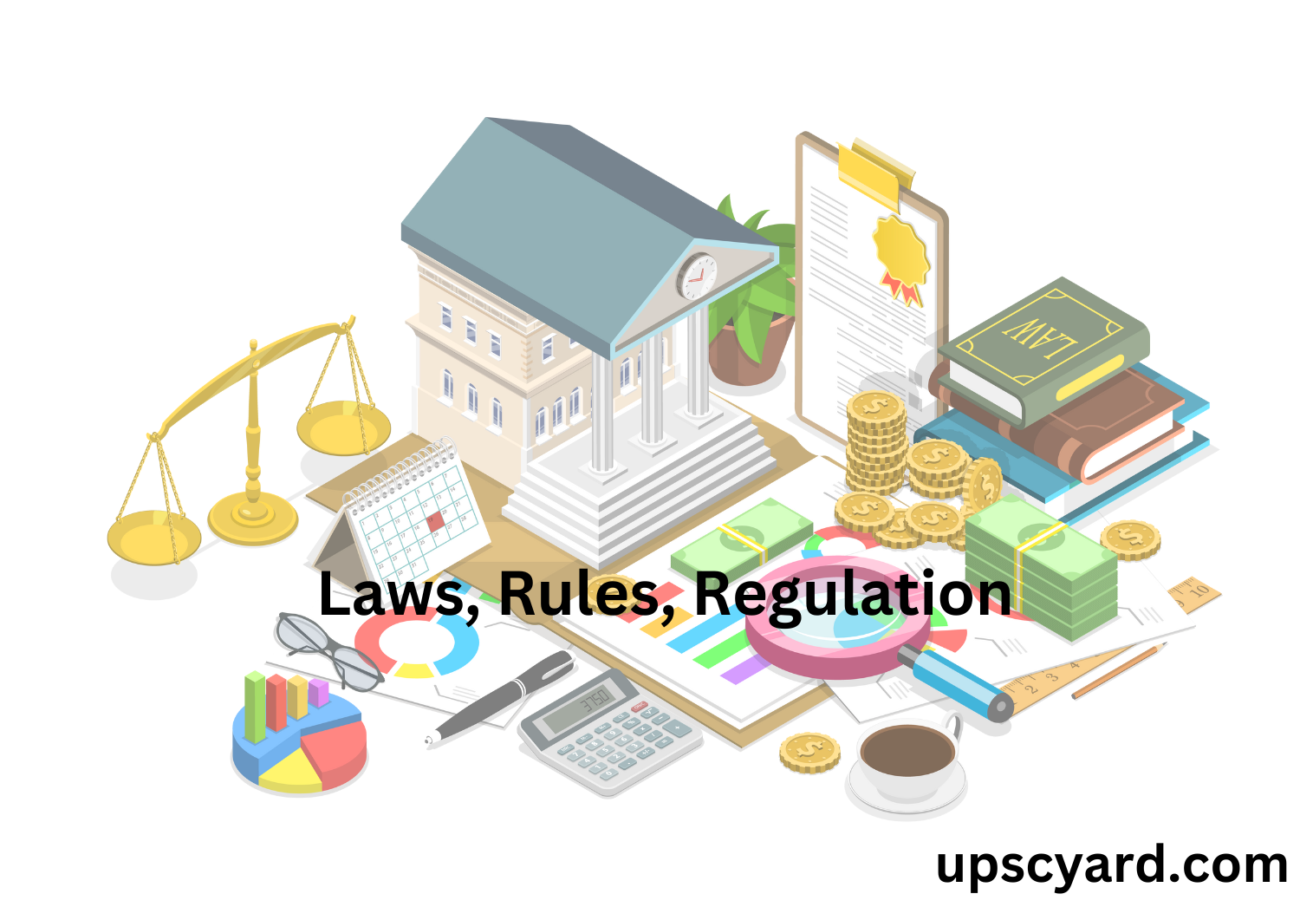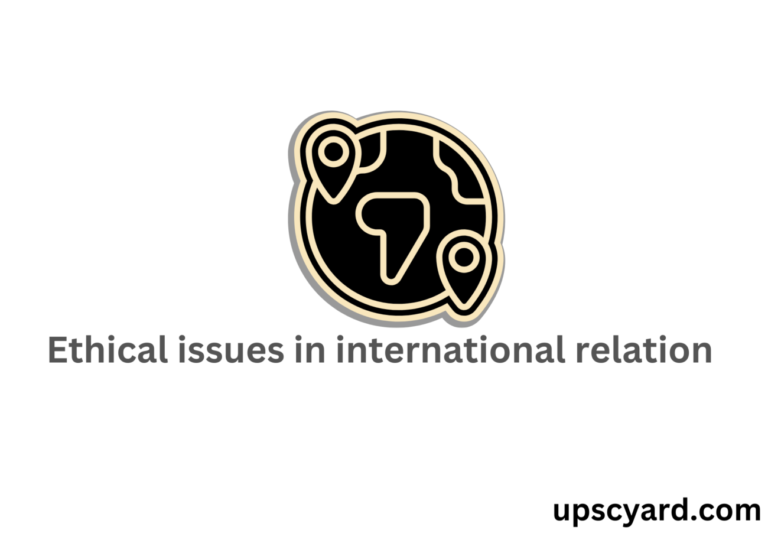Laws, Rules, Regulation
Notion of Law
Laws need to harmonize with human nature, meaning they should be both practically and morally achievable.
The concept of law in ethics differs from the idea of law in physics, where it signifies a consistent and universal mode of action. In ethics, law carries a moral implication.
St. Thomas Aquinas, a philosopher and Christian saint from the thirteenth century, presented a notable classification of different types of law. He distinguished between eternal law, rooted in theology, which reflects God as the ruler of the universe, and temporal law, created within human existence. Eternal law exists eternally, regardless of human presence, representing the divine mind.
This transitions into the category of Divine Law, which derives from eternal law and is “revealed” to humans through sacred texts as commandments. If these laws come from God, then there must be a way for them to be communicated to humanity. However, not everyone reads these holy texts or believes in God. Thus, Aquinas suggests that humans are endowed with the ability to discern laws through intuition and reasoning based on nature. This gives rise to two kinds of human laws: natural and positive laws.
Laws also need to uphold justice by ensuring an equal distribution of advantages and responsibilities.
The purpose of the law is to serve the collective welfare, rather than catering to individual interests.
Law vs Ethics
Issues in this context.
1. Rape-accused marrying the victim is a solution?
2. Section 375 of the Indian Penal Code (IPC) considers the forced sex in marriages as a crime only when the wife is below age 15. Thus, marital rape is not a criminal offense under the IPC. Marital rape victims have to take recourse to the Protection of Women from Domestic Violence Act 2005 (PWDVA).

Types of Law
The Eternal law
This concept depicts God as the ultimate authority over the entire Universe. It’s widely believed that eternal law governs all aspects of existence. This serves as a testament to divine insight and wisdom.
The Divine law
This understanding is granted through revelation and goes beyond the boundaries of natural law by providing instructions on attaining everlasting happiness.
The Natural law
The fundamental concept of natural law revolves around doing what is morally right and avoiding what is wrong. This concept is grounded in the belief that a valid reason behind a moral or legal guideline is its contribution to the preservation of human life, as all living beings naturally seek survival.
From this primary principle, the secondary principle is derived, building upon the foundation of doing good and avoiding evil.
Furthermore, the tertiary principle delves into more intricate reasoning, as it involves complex deductions drawn from both the primary and secondary principles.
Rules
Rules are regulations put forth by both individuals and organizations. These regulations serve as codes of behavior tailored to specific situations, akin to traditions, yet they hold significant weight due to the potential penalties associated with their breach. Rules exhibit a certain flexibility and tend to carry fewer severe outcomes.
They serve as strategic tools aimed at ensuring the smooth operation of an entity and fostering harmony among its members. With a personal touch, rules are often adjusted to match the evolving circumstances within a home environment. These guidelines play a crucial role in helping individuals adapt to societal living. On a fundamental level, rules can also pertain to legal decisions, such as a judge’s ruling in a court case.
Difference between law and rules
| Aspect | Rules | Laws |
|---|---|---|
| Nature | Guidelines for conduct | Legal regulations and principles |
| Consequences | Often have less severe consequences | Usually entail more significant consequences |
| Purpose | Promote order, fairness, and safety | Establish legal framework and social order |
| Authority | Typically established by individuals or groups | Formally enacted through legislative processes |
| Flexibility | More flexible and adaptable | Less flexible, written in specific legal code |
| Process for Implementation | Set and adjusted based on need | Requires due process for enactment |
| Equal Treatment | Variability in enforcement and consequences | Uniform application and consequences |
| Social Function | Support smooth functioning within groups | Establish societal governance and order |
Rules and laws both play a crucial role in maintaining order within society, but laws hold greater legal weight and are typically more structured due to their formal enactment through legislative processes.
Rules and Regulations VS. Outcomes

Regulation
A regulation is a legal guideline aimed at influencing behavior arising from imperfections (Orbach, Barak, 2012). Regulations consist of two key components: a system for overseeing and enforcing laws and a written document containing rule-based instructions with legal force. The art of regulation involves establishing, defining, or adapting rules, methods, or established practices while adhering to governing laws or ideologies. Regulations are formulated by the executive branch, often through various departments such as state, agriculture, and treasury departments.
They resemble rules in the sense that they provide greater specificity to laws set by legislative bodies. Regulations are generally established by the executive branch to ensure the efficient operation of laws. While laws offer a broad framework for addressing a subject, regulations offer intricate and detailed frameworks to implement and operationalize those laws effectively.
Take a moment to consider your stance on the matter of social media companies banning Trump.
It’s crucial to reflect on the fact that entrusting the regulation of free speech to a handful of tech giants might not be the best approach. Instead of targeting entire individuals, these companies could have concentrated on specific posts that incited issues. The very structure of the internet, including services like cloud computing, which should remain neutral, is at risk of getting entangled in divisive political conflicts. Another concern arises from the question of who is making these decisions. It’s a small group of unelected and unaccountable executives within these companies who hold the reins. While their intention might indeed be to safeguard democracy, it’s not always easy to be completely certain about their motivations.




